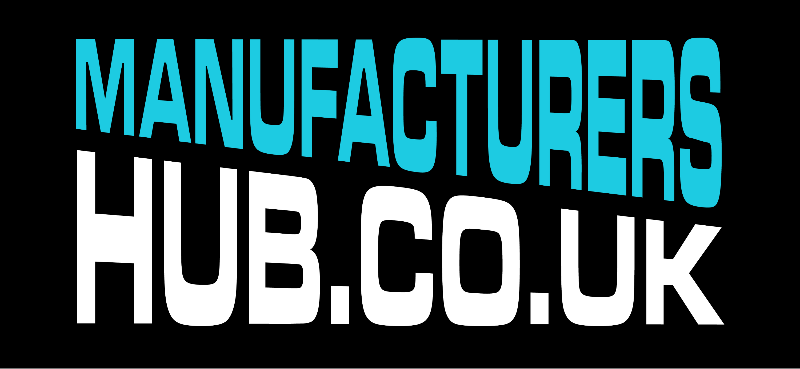A Guide to ISO Accreditations: Benefits, Standards, and Industry Applications in the UK
- Jan 20
- 3 min read
What Does ISO Stand For?
ISO stands for the "International Organization for Standardization." This global, independent, non-governmental organization develops and publishes standards that ensure the quality, safety, efficiency, and sustainability of products, services, and systems across industries. ISO helps businesses operate more effectively and meet global expectations by standardising practices.

In today’s competitive landscape, achieving ISO accreditation has become a vital benchmark for businesses across the UK. With over 24,000 ISO standards globally, these certifications provide a framework for improving efficiency, compliance, and trust across various industries. Here, we explore the most commonly used ISO standards in the UK, their benefits, and the industries where they apply.
Comprehensive ISO Standards and Their Applications
1. ISO 9001: Quality Management Systems (QMS)
Benefits:
Enhances customer satisfaction and confidence.
Increases efficiency and reduces waste.
Boosts credibility and market competitiveness.
Assists in compliance with regulatory and legal requirements.
Industries: Manufacturing, Engineering, Construction, Automotive, Healthcare, Aerospace, Hospitality, and Professional Services.
2. ISO 14001: Environmental Management Systems (EMS)
Benefits:
Reduces environmental impact and enhances sustainability.
Ensures compliance with environmental laws.
Improves resource efficiency and reduces waste.
Enhances reputation with stakeholders and customers.
Industries: Construction, Manufacturing, Energy, Waste Management, and Logistics.
3. ISO 45001: Occupational Health and Safety Management Systems
Benefits:
Reduces workplace risks and improves employee safety.
Decreases costs associated with workplace incidents.
Demonstrates a commitment to employee well-being.
Ensures compliance with health and safety legislation.
Industries: Manufacturing, Construction, Logistics, Healthcare, and Energy.
4. ISO 27001: Information Security Management Systems (ISMS)
Benefits:
Protects sensitive information from breaches.
Enhances trust with clients and stakeholders.
Ensures compliance with data protection laws (e.g., GDPR).
Reduces the risk of cybersecurity threats.
Industries: IT, Financial Services, Healthcare, Telecommunications, and Public Sector.
5. ISO 50001: Energy Management Systems (EnMS)
Benefits:
Reduces energy consumption and costs.
Improves energy efficiency and sustainability.
Ensures compliance with energy regulations.
Demonstrates corporate social responsibility (CSR).
Industries: Manufacturing, Energy, Transportation, and Utilities.
6. ISO 22000: Food Safety Management Systems (FSMS)
Benefits:
Ensures safe production, processing, and distribution of food.
Enhances customer trust and satisfaction.
Facilitates compliance with food safety laws.
Reduces risks of contamination or recalls.
Industries: Food Manufacturing, Agriculture, Retail, and Hospitality.
7. ISO 22301: Business Continuity Management Systems (BCMS)
Benefits:
Enhances resilience against disruptions and disasters.
Minimizes downtime and revenue loss.
Protects reputation and customer trust.
Ensures compliance with business continuity regulations.
Industries: Finance, Healthcare, IT, Utilities, and Public Sector.
8. ISO 13485: Medical Devices Quality Management Systems
Benefits:
Ensures consistent quality and safety of medical devices.
Meets regulatory requirements for medical devices.
Enhances market access and customer trust.
Reduces product defects and recalls.
Industries: Medical Device Manufacturing, Healthcare, and Biotechnology.
9. ISO 31000: Risk Management
Benefits:
Improves decision-making by identifying and mitigating risks.
Enhances operational efficiency.
Protects assets, reputation, and stakeholders.
Increases compliance with risk-related regulations.
Industries: Financial Services, Energy, Manufacturing, and Logistics.
10. ISO 20121: Event Sustainability Management Systems
Benefits:
Minimizes the environmental impact of events.
Enhances community engagement and inclusivity.
Reduces waste and resource usage.
Improves reputation among stakeholders and attendees.
Industries: Event Management, Hospitality, and Tourism.
11. ISO 29001: Quality Management for Oil and Gas
Benefits:
Ensures consistent quality and reliability in oil and gas operations.
Reduces operational risks and failures.
Enhances compliance with industry regulations.
Boosts customer trust and satisfaction.
Industries: Oil and Gas Exploration, Refining, and Distribution.
12. ISO 26000: Social Responsibility
Benefits:
Improves reputation and trust with stakeholders.
Enhances employee satisfaction and engagement.
Encourages sustainable and ethical practices.
Aligns with CSR and ESG (Environmental, Social, Governance) goals.
Industries: All industries, particularly those with high public visibility or stakeholder scrutiny.
13. ISO 37001: Anti-Bribery Management Systems
Benefits:
Prevents and detects bribery risks.
Demonstrates commitment to ethical practices.
Reduces legal risks and penalties.
Builds trust with partners and clients.
Industries: Financial Services, Construction, Public Sector, and Multinational Enterprises.
14. ISO 17025: Competence of Testing and Calibration Laboratories
Benefits:
Ensures accurate and reliable laboratory results.
Improves operational efficiency and compliance.
Enhances credibility and client confidence.
Facilitates international recognition.
Industries: Testing Laboratories, Calibration Services, and Research Institutions.
15. ISO 56002: Innovation Management Systems
Benefits:
Encourages a structured approach to innovation.
Enhances creativity and idea generation.
Increases competitiveness and market share.
Industries: Technology, Manufacturing, Research, and Development.
Why ISO Standards Matter
ISO certifications help businesses streamline operations, improve trust, and comply with industry regulations. Achieving ISO accreditation not only demonstrates a commitment to quality, safety, and sustainability but also boosts a company’s competitive edge in the marketplace.
For businesses looking to implement ISO standards, identify the ones that align with your goals and industry requirements. Investing in these certifications today can open doors to new opportunities, partnerships, and growth.
Visit Manufacturers Hub to find ISO consultancy firms and software to make the process easier and more manageable!

